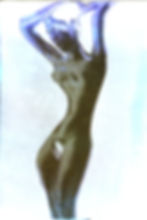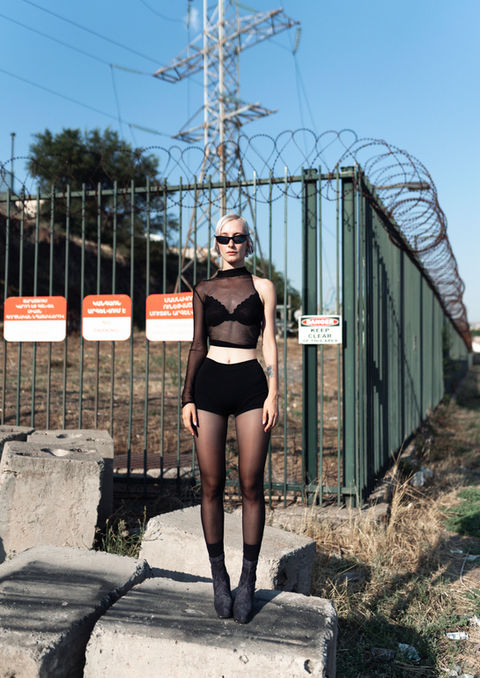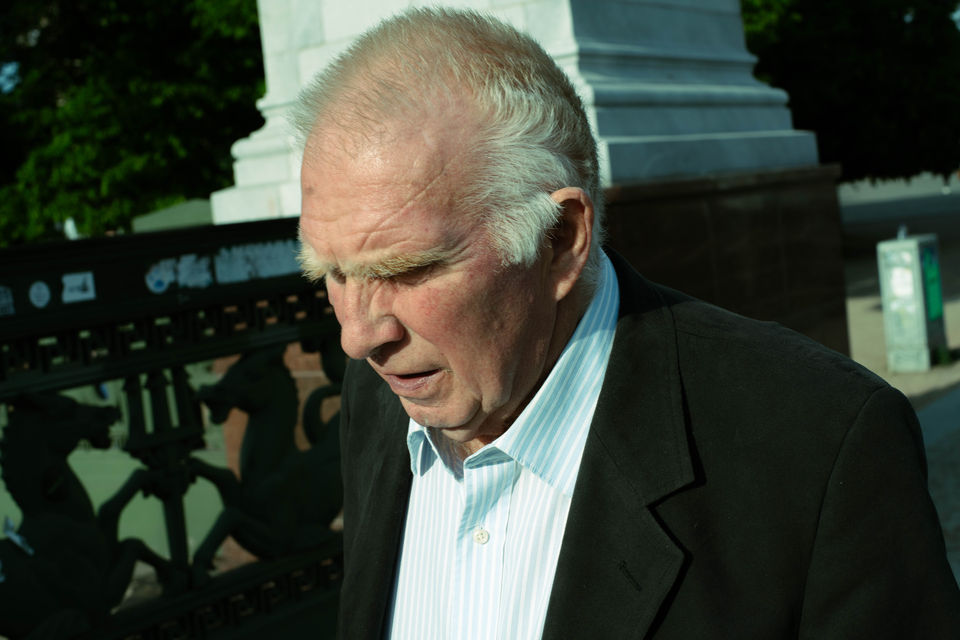It’s like going on a mutual search a shared journey into the inner world of another human being, where layers of truth and silence wait to be seen. Photography, for me, is not about taking something from someone, but uncovering what already exists beneath the surface.
In those moments, time disappears. Reality fades. There is only focus, light, and the quiet presence of another soul. One frame after another, something begins to emerge not a perfect image, but an emotion, a glimpse of truth that passes quickly and leaves an echo.
Through the camera, I feel the pulse of the person in front of me. It’s an intimate rhythm, fragile, real, unrepeatable. We merge for a brief second, somewhere between vulnerability and strength.
The photographs that remain are more than portraits. They are fragments of time, reflections of shared existence, documents of feeling and history, carrying within them the quiet story of their creation.
Swipe right to continue
I was born and raised in an artistic family in Armenia. My father owned one of the most renowned photography studios in our hometown, and it was there that I developed a deep appreciation for the medium. However, my true passion has always been film especially directing and storytelling.
After earning a degree in History, I enrolled at the Yerevan University of Theatre and Film to study film directing. A year later, I made the decision to leave and move to Germany to pursue my dream of exploring European cinema more deeply and continuing my education.
I draw immense inspiration from cinema poets like Bergman, Antonioni, and Tarkovsky, filmmakers I admire for their depth, subtlety, and uncompromising vision. Today, I split my time between Berlin and Los Angeles.
My father owned a photography studio in Vanadzor. He was a decent photographer in his early days, but over time, his work became less inspired, losing its taste and quality much like my hometown and country.
My grandmother would prepare lunch for my father usually soup and put it in a pot without a lid. She’d place the pot in a bag, and I had to carry it to my father’s studio, which was a 15-minute walk from our home. By the time I arrived, half the soup had spilled because there was no lid and I couldn’t carry it upright. My father would always end up hungry but stayed slim because of it.
While he ate the remnants of the soup, I would look around his studio, fascinated by his cameras and the massive spotlights. In the center of the room stood a large wooden box, a very old camera. The floor was covered with a filthy, ancient carpet. On the wall hung a backdrop: a garish painting of a waterfall. Every time I looked at it, my eyes hurt. It was tasteless. It was terrible.
That’s where I learned how not to photograph.
I was born in 1988, the year of the Spitak earthquake that shattered Armenia and marked the beginning of an era of collapse and change. Our house was destroyed, and my family lived in a tent for months. Everyone was afraid deeply, silently afraid and perhaps that fear became part of me. I was a sick child with fragile lungs, and my parents took me from doctor to doctor, all the way to Sochi and Adler. They called it asthma, but I believe it was something deeper, something emotional a response to the world shaking around me.
Every night, my grandfather told me stories. Beautiful, strange, magical tales that existed only in his voice. I grew up inside those fairytales. When he passed away, I was five years old and still couldn’t read, so I would give my books to anyone who could, just to hear stories again.
My other grandfather loved cinema. He worked in Moscow and always brought home films on VHS tapes. As a child, I fell in love with that world. I was obsessed with films, from the blockbusters of Van Damme, Bruce Lee, Schwarzenegger, and Stallone to the poetic worlds of Fellini, Antonioni, Tarkovsky, and other great visionaries. They shaped how I see the world the movement, silence, light, and emotion that live between moments.
Years later, I applied to the HFF Film School in Munich and was rejected. That was one of the hardest moments of my life it felt like the dreamer, the filmmaker inside me, died that day. I couldn’t understand why others were given the chance, and not me. That disappointment changed me forever.
Photography became my refuge my rebellion. It’s how I protect myself, how I speak when words fail. It’s where I turn the noise of the world into something silent and beautiful. Sometimes, when everything aligns, something timeless appears.
Photography has been with me my whole life from my father’s studio in Vanadzor to my small apartment in Berlin. It is both my language and my home.





























































































































